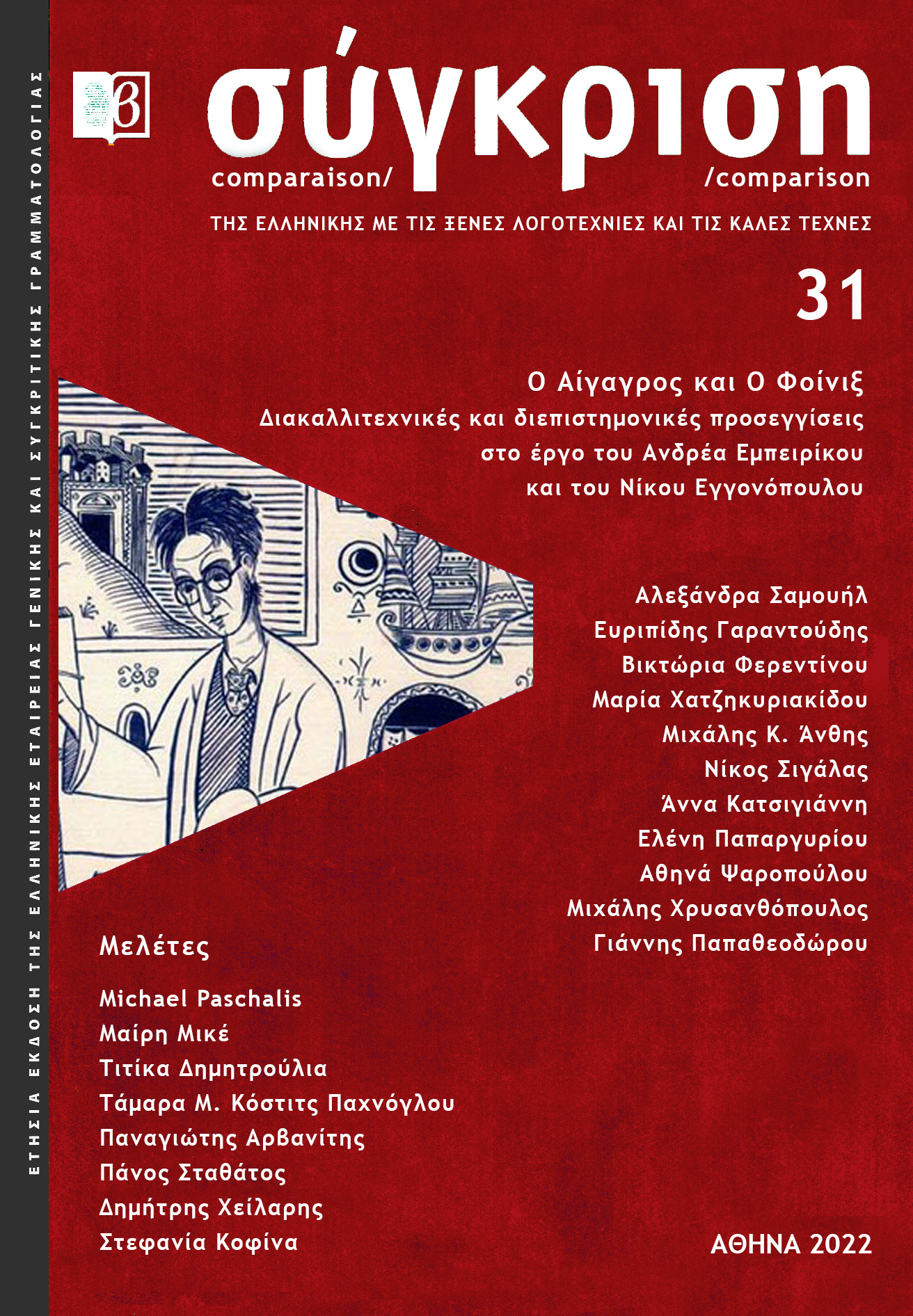ΤΑΜΑΡΑ Μ. ΚΟΣΤΙΤΣ ΠΑΧΝΟΓΛΟΥ, Ο άνθρωπος απέναντι στην εξουσία: Οι περιπτώσεις των ηρώων του Κάφκα και του Φραγκιά
Abstract
A man against the authorities: The case of the literary characters of Kafka and Frangias
The topic of power, as well as the ways of its manifestation, has always been relevant and has occupied the attention of many authors. In this paper, we have dealt with a comparative analysis of the representation of the theme of power and its influence on literary characters in the works of two writers - Franz Kafka and Andreas Frangias. The work of Andreas Frangias, precisely because of his approach to the topic of power, which seems prophetic today, is attracting the attention of a growing number of literary scholars in Greece and abroad. It is believed that Franz Kafka had an important influence on his views, and that is the reason why we chose these two writers for the analysis. Although Kafka`s work was created at the beginning of the twentieth century, and Frangias` during the second half, the topic of power is largely represented in the literary opus of both, but the approaches to this topic are diverse and worth studying. In addition, the question raised by Michel Foucault about whether or not the power can be identified with violence is also the subject of this paper. While analyzing the reactions of the characters to violence, we tried to show the extent to which the two writers equate the notion of power with violence. The analysis showed that the success of the authorities in achieving their intentions largely depends on the reaction of those to whom the violence is directed - they can react in the expected way, but they can also greatly surprise with their attitude and reaction. They can completely surrender to the role of a victim, which is a frequent choice of Kafka's characters, but they can also, despite the price they will probably have to pay, choose consistency for themselves and freedom, following the example of Andreas Frangias` characters. The messages about power and the mechanisms of its action that Kafka and Frangias want to send are the same - the authorities use unpredictable mechanisms, they are covert and constantly active, they trie to deceive and rule the mind. Not all people are able to rebel, and many do not think it is necessary. Although they deal with the same topic, Kafka's work exudes pessimism, surrendering and powerlessness, while Frangias' optimism, a call to preserve freedom, authenticity and hope. The opinion of most critics that Frangias wrote under Kafka's great influence, in most cases, proved to be incorrect.
Article Details
- How to Cite
-
Κόστιτς Παχνόγλου Τ. Μ. (2022). ΤΑΜΑΡΑ Μ. ΚΟΣΤΙΤΣ ΠΑΧΝΟΓΛΟΥ, Ο άνθρωπος απέναντι στην εξουσία: Οι περιπτώσεις των ηρώων του Κάφκα και του Φραγκιά. Comparison, 31, 185–195. https://doi.org/10.12681/comparison.31280
- Issue
- Vol. 31 (2022)
- Section
- Articles

This work is licensed under a Creative Commons Attribution-NonCommercial-ShareAlike 4.0 International License.
Authors who publish with this journal agree to the following terms:
- Authors retain copyright and grant the journal right of first publication with the work simultaneously licensed under a Creative Commons Attribution Non-Commercial License that allows others to share the work with an acknowledgement of the work's authorship and initial publication in this journal.
- Authors are able to enter into separate, additional contractual arrangements for the non-exclusive distribution of the journal's published version of the work (e.g. post it to an institutional repository or publish it in a book), with an acknowledgement of its initial publication in this journal.
- Authors are permitted and encouraged to post their work online (preferably in institutional repositories or on their website) prior to and during the submission process, as it can lead to productive exchanges, as well as earlier and greater citation of published work (See The Effect of Open Access).



